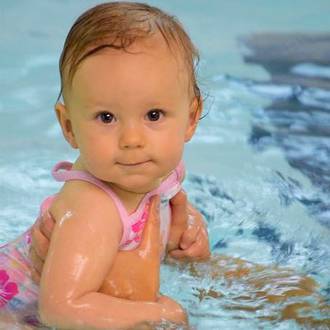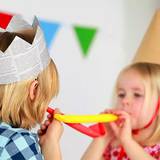Shop
01792
https://www.under5s.co.nz/shop/Hot+Topics+Articles/Activities/Physical+benefits+of+teaching+babies+to+swim.html
Physical benefits of teaching babies to swim
|
There are many physical benefits of teaching babies to swim, as well as helping them to overcome their initial fear of water. Swimming helps babies physical progress later in life, along with providing them with some essential social skills.
|
You might also be interested in ...
Make an arty lamp shade for your kids room
Does your kids room need a new lamp shade for the main light or their bedside table? Why not have a go at making your own! It's easy to turn your kids artwork into a unique, personalised lamp shade they’ll love having in their bedroom. Or if your little one is too young for drawing, why not create the artwork yourself instead.
Kids indoor & outdoor party games
All kids love playing party games! So here are some tips and suggestions on fun-packed indoor and outdoor games which are sure to be a big hit.
join usJoin us on social media for all our latest news. |
sign upSign up and receive our latest newsletters. |
|







There are many physical benefits of teaching babies to swim, as well as helping them to overcome their initial fear of water.
Swimming helps babies physical progress later in life, along with providing them with some essential social skills.
Researchers from Norway and Britain also found that children who had taken swimming lessons as a baby did better on tests involving gripping and reaching as well as balance, compared to children who had no experience swimming as babies.
Physical benefits of teaching babies to swim
Mammalian Diving Reflex
All babies have primitive and postural reflexes, one of which is the Mammalian Diving Reflex, which is strong between 0-6 months.
The Mammalian Diving Reflex is most well developed in children, and is gradually decreased with age.
It enables them to naturally breath-hold when submerged, and this can be seen quite clearly when you plunge your baby into the water during a swimming lesson or in the family pool.
When a baby’s face enters the water covering their forehead and nose area, their body automatically redistributes the blood flow ensuring the 'key' organs such as the brain and heart, receive a constant supply of oxygen.
This reflex is perfectly natural and leaves when they're around 8 months old.
Gradually this reflex turns into the 'Dive Response', which continues into adulthood.
As your baby is only submerged for a matter of seconds during a lesson, it is the 'Dive Response' that then kicks in and helps them as they swim.
Swimming lessons will ensure that they are comfortable with this reflex, and will see them becoming happier and more confident in the water.
Developing & strengthening key skills
Gross and fine motor skills are strengthened and coordination and balance are enhanced in babies who enter the water early.
For this reason the younger your little one starts in lessons the easier the transition is to enjoying the water.
A baby who is used to being stationary can move about independently in the pool as they learn balance and coordination.
The motion and sensation of the water gives them an awareness of self that otherwise would not be gained at such a young age, and sets them up for life.
Additionally, early experiences in water allow babies to better develop their psychomotor skills, because there they can move more freely and begin to understand concepts of distance and movement.
Their cardio-respiratory system is also strengthened as a baby exercises their heart and lungs.
On the whole, a child who starts lessons early is far more relaxed and happy in the water, and in a country as water loving as New Zealand, this is vital.
More kids sports articles to enjoy:
Source: This article was written by Northern Arena. Call 09-421-9700 for more information.